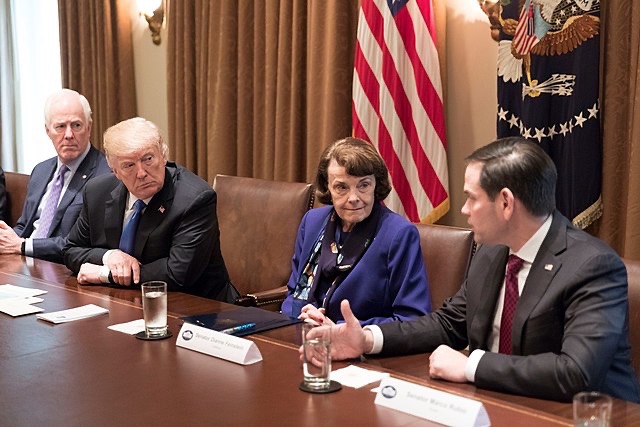As the world watches the ongoing Ukraine-Russia conflict with growing unease, new tensions are emerging—not just between Kyiv and Moscow, but within international diplomatic circles. At the center of this new friction is a warning from U.S. Senator Marco Rubio: the United States, under Donald Trump’s leadership, may withdraw from its role in brokering peace efforts if progress is not made in a matter of days.
This shift marks a significant change in tone. Just months ago, the U.S. appeared deeply committed to navigating a peaceful resolution between Ukraine and Russia. But now, with Trump reportedly prioritizing other global issues and signaling a willingness to abandon the diplomatic push, questions are swirling around the stability and direction of Western involvement.
This article breaks down Rubio’s warning, the stalled peace talks, and what Trump’s potential withdrawal could mean for the future of the conflict—and for Europe’s security.
Rubio’s Warning from Paris
Speaking from Paris after a series of high-level meetings with European and Ukrainian officials, Marco Rubio delivered a message that was as direct as it was unsettling. The United States has other priorities,” he said, emphasizing that President Trump is growing increasingly frustrated with the lack of progress in the negotiations. If tangible results don’t materialize soon, the U.S. may simply walk away.
Rubio, who has emerged as one of Trump’s closest foreign policy surrogates, stated that while the U.S. still hopes for a peaceful resolution, its patience is wearing thin. “Read the full report here.”
His comments come amid growing concerns that the peace process has stalled, with little movement despite months of talks and proposed ceasefires. European diplomats are scrambling to keep the U.S. at the negotiating table, fearing that a U.S. withdrawal could destabilize not just the talks, but also Ukraine’s defense capabilities.
Why Trump Might Exit the Peace Talks
Donald Trump’s foreign policy has always prioritized tangible outcomes and immediate strategic gains. The Ukraine-Russia conflict, long mired in complex regional politics and historical grievances, may no longer be a top concern for an administration now eyeing crises in the Middle East and Indo-Pacific.
Rubio pointed out that Trump’s frustration stems from what he sees as a lack of commitment from both Ukraine and Russia to take meaningful steps toward resolution. “We’re not here to babysit this conflict forever,” he noted. The idea is clear: if the U.S. is going to invest political capital and economic support, it expects measurable results.
This strategy is risky. A hasty U.S. exit from the peace process could send the wrong signal to both adversaries and allies. Some experts warn that it might embolden Russia to push harder militarily, knowing the diplomatic pressure from Washington is weakening.
For more analysis, check the full piece on The Times.
What This Means for Ukraine
Ukraine, already under immense pressure, faces a precarious situation. President Volodymyr Zelenskyy has been vocal about the need for continued international support—not just militarily, but diplomatically. The potential withdrawal of the U.S. would leave a gaping void in the peace process and could reduce Kyiv’s leverage in negotiations with Moscow.
Zelenskyy has also expressed concern over recent U.S. demands that Ukraine repay military aid provided during the war. He has firmly rejected the notion, stating that the aid was granted in the context of global security and should not be treated as a loan. This financial dispute is threatening to undermine trust between the two nations at a critical juncture.
Despite these tensions, Ukraine has remained committed to a peaceful solution. It has unconditionally agreed to a 30-day ceasefire proposal, only to have it dismissed by the Kremlin. Read about Ukraine’s position here.
Russia’s Continued Offensive
While peace negotiations have stalled, Russia has escalated its military operations along the 600-mile front. The Kremlin flatly rejected the proposed ceasefire and has instead launched fresh assaults on key Ukrainian cities including Sumy and Kharkiv. These attacks have resulted in multiple civilian deaths, fueling outrage both in Ukraine and abroad.
Analysts believe that Russia is using military pressure as a negotiation tactic, hoping to secure more favorable terms. With the U.S. potentially stepping back, Moscow may feel empowered to push even harder, both diplomatically and militarily.
These developments underscore the fragility of the peace talks and the immense human cost of delay. If diplomacy fails, it’s civilians who will continue to suffer the consequences.



